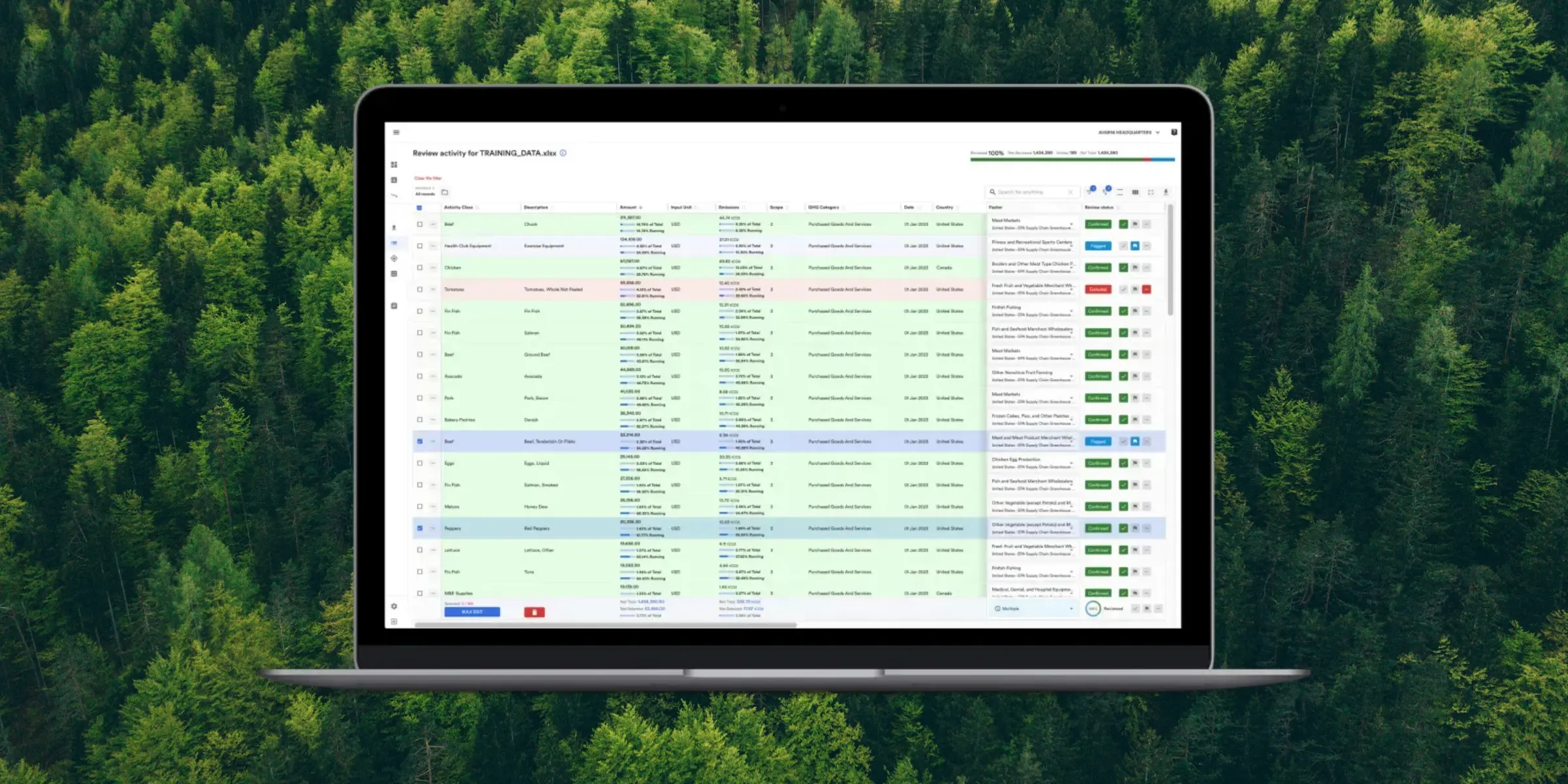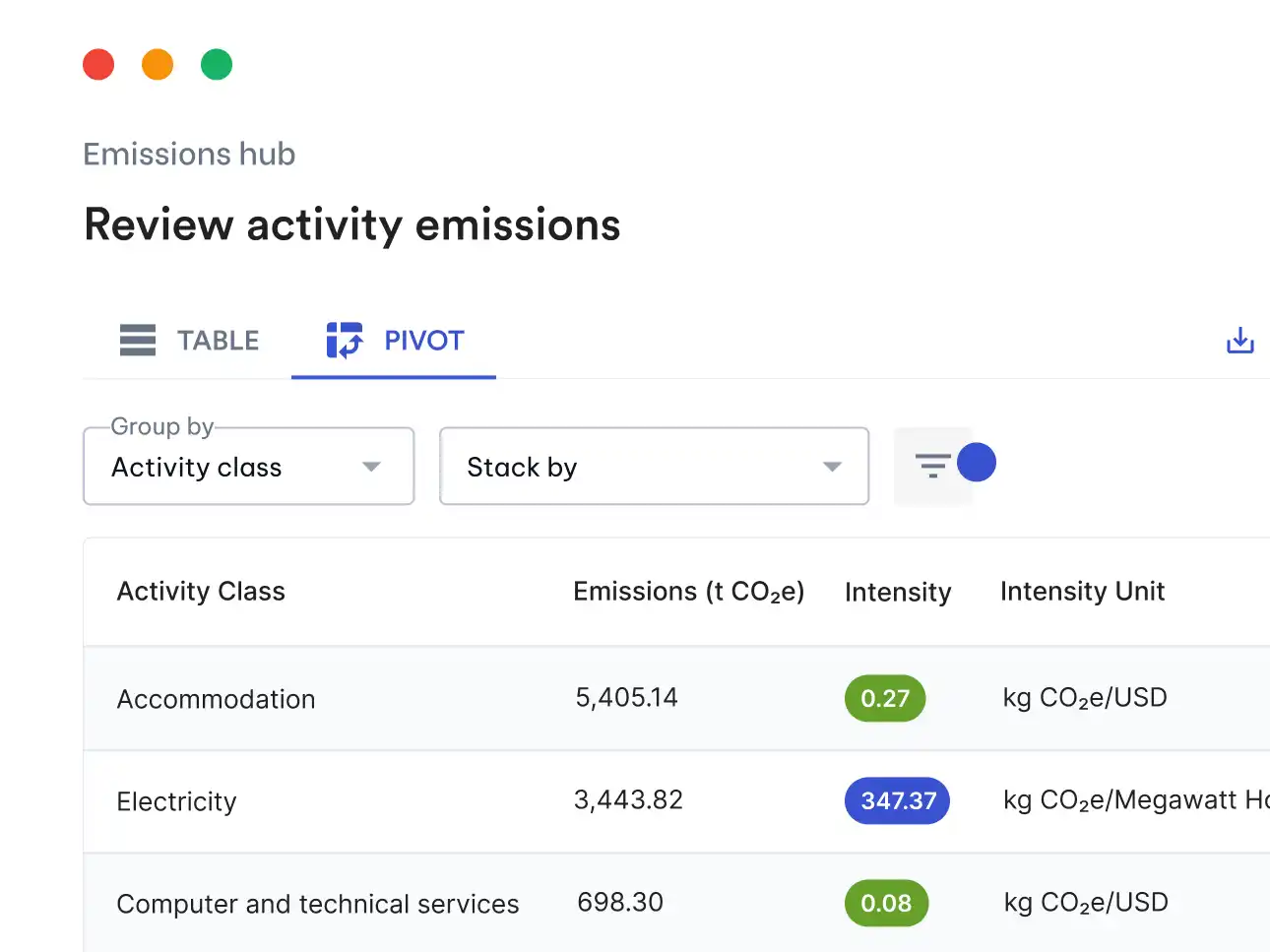As climate regulations tighten, companies face growing pressure to track and disclose their emissions. Whether it’s Australian Sustainability Reporting Standards (ASRS) based on AASB S2, the EU’s Corporate Sustainability Reporting Directive (CSRD, or California's SB 253 and SB 261, mandatory climate disclosure frameworks are setting stricter requirements.
Managing emissions data manually is no longer just inefficient — it’s a compliance risk. The right climate reporting software can streamline data collection, ensure accuracy, and simplify compliance with global and regional standards. But not all software is created equal. If you're evaluating options, here’s what to look for — and how platforms like Avarni can help.
What to look for in mandatory climate reporting software
Automated data collection and integration
Manually tracking emissions is a nightmare. Companies gather data from multiple sources — utility bills, supplier reports, operational systems — and without automation, the process is slow and prone to errors. The best climate reporting software integrates directly with your existing systems, pulling in data automatically from financial systems, and supply chain partners.
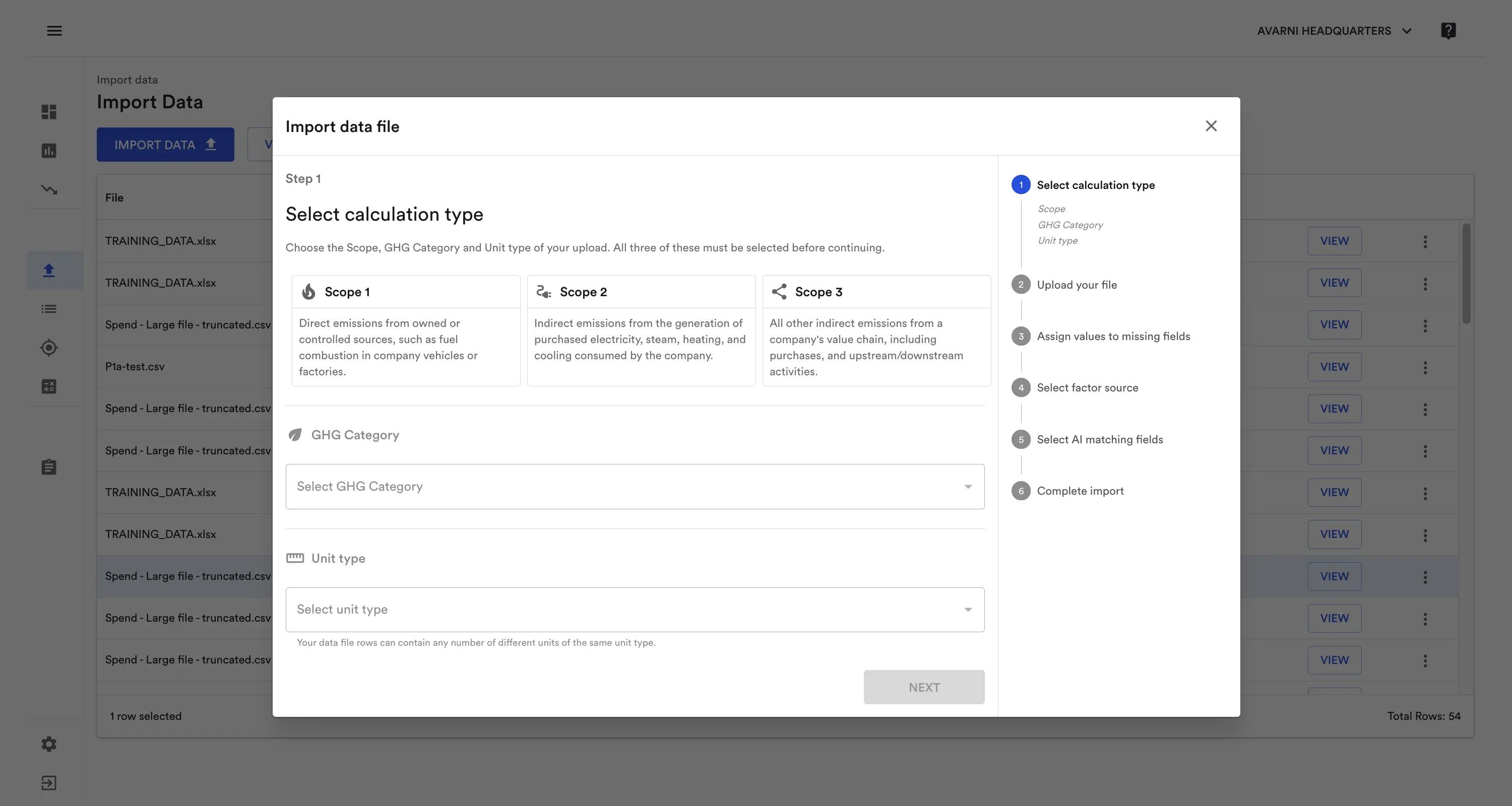
Avarni, for example, uses AI to streamline data collection, making it easier to aggregate emissions across Scope 1, 2, and 3. Instead of chasing spreadsheets, companies can focus on strategy and compliance.
Compliance with global and regional standards
Climate disclosure regulations vary across jurisdictions, but most align with the Greenhouse Gas (GHG) Protocol, Task Force on Climate-related Financial Disclosures (TCFD), and International Sustainability Standards Board (ISSB) frameworks. In Australia, the ASRS, developed by the Australian Accounting Standards Board (AASB), follows ISSB’s S2 climate disclosure requirements. A good reporting platform should support these standards and make it easy to map emissions data to the required frameworks.
Avarni is built for regulatory compliance, aligning emissions calculations with the GHG Protocol, TCFD, ISSB, and Australia’s AASB S2 requirements. This ensures reports meet global and regional standards, making it easier for businesses to stay ahead of evolving regulations.
Scope 3 emissions tracking
Scope 3 emissions — indirect emissions from supply chains, business travel, and product use — often account for the majority of a company’s carbon footprint. Yet, they’re also the hardest to track. A strong reporting platform should include Scope 3 calculation methodologies, supplier engagement tools, and reliable emissions factor databases.
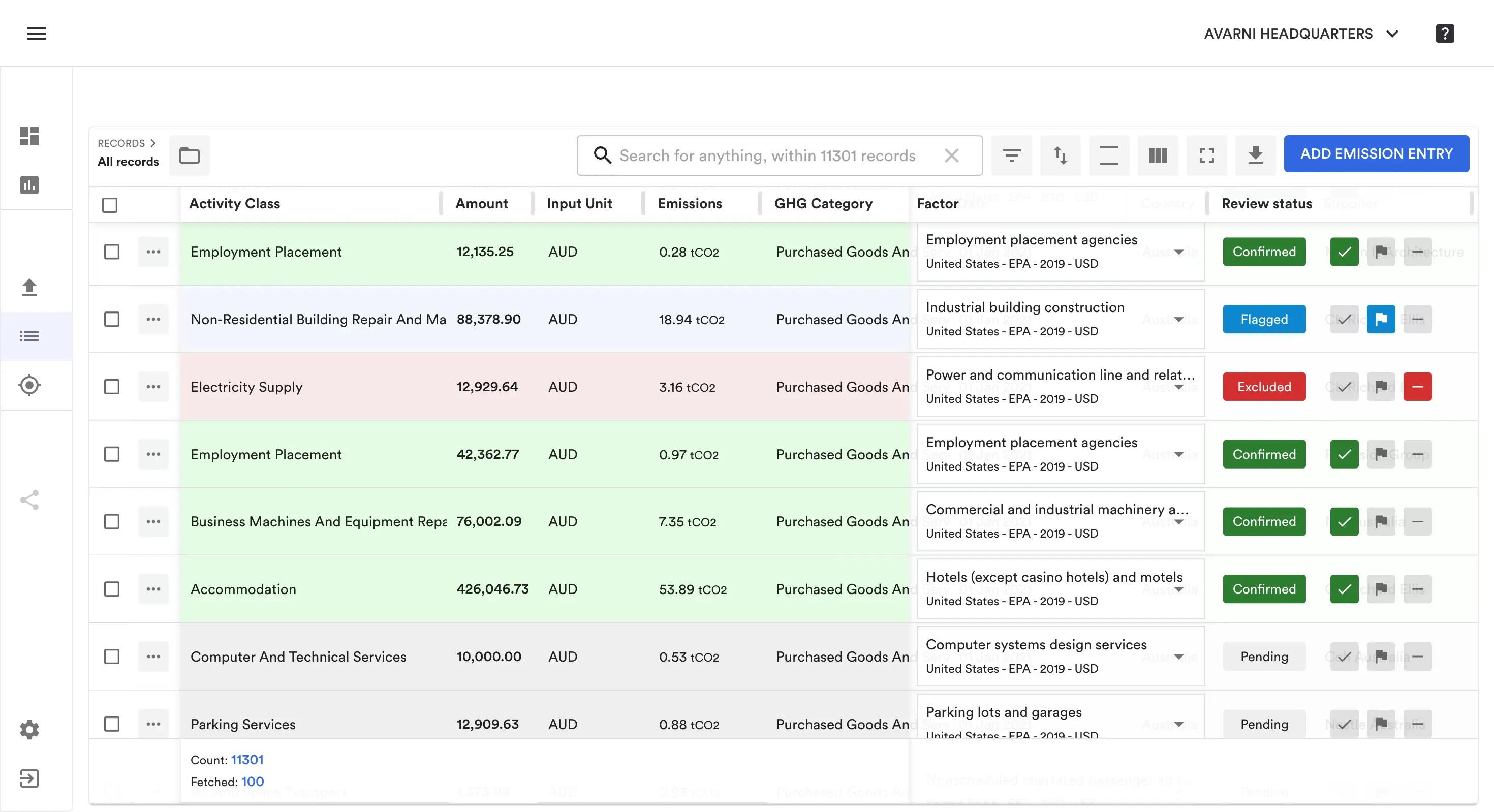
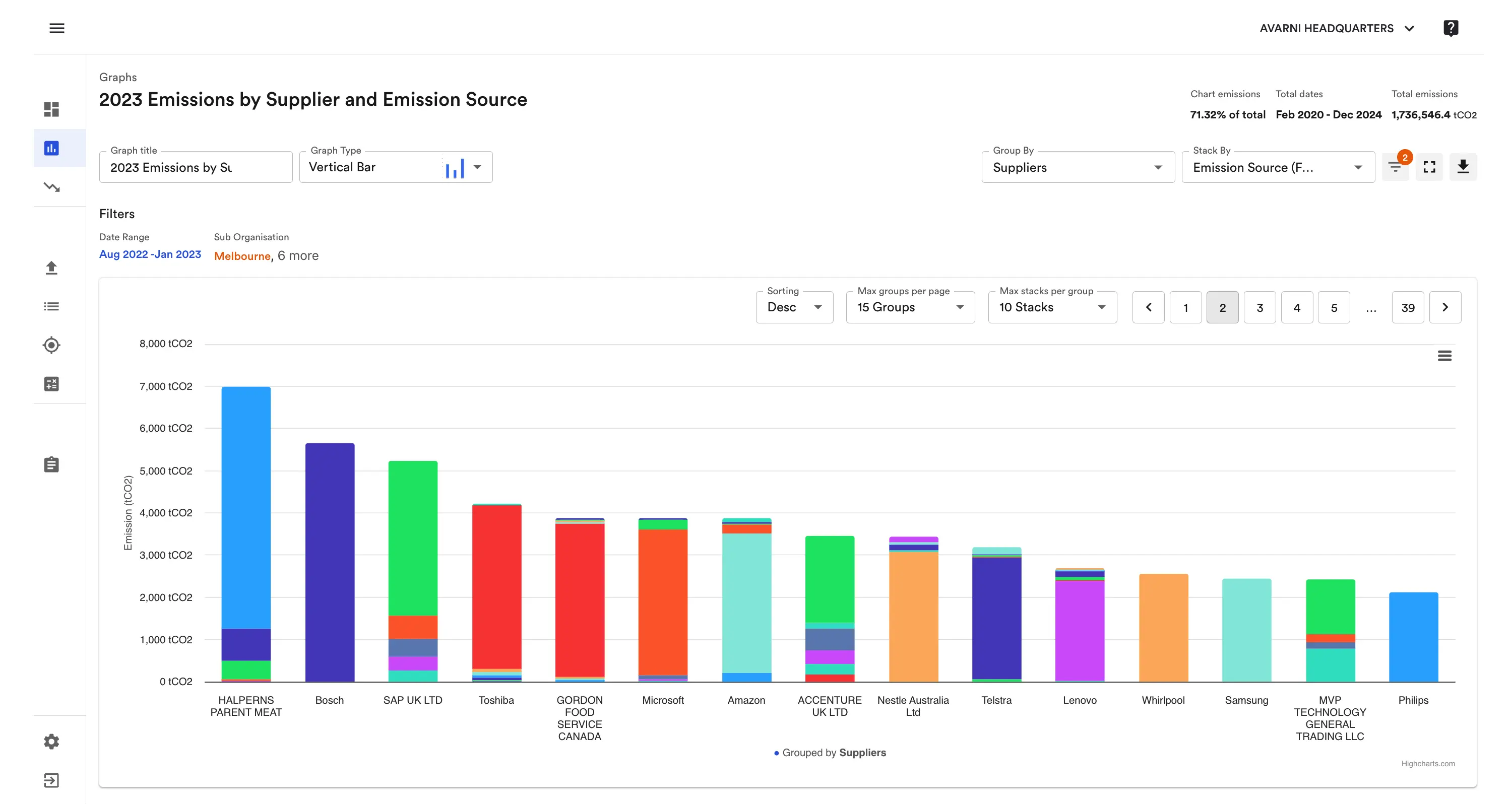
Avarni excels in Scope 3 tracking, leveraging AI-driven supplier insights and an extensive emissions factor database. This helps businesses fill data gaps and generate more accurate estimates for indirect emissions.
Track science-based targets in the supply chain
More companies are setting science-based emissions reduction goals, but tracking progress across supply chains remains a challenge. Avarni’s SBTi tracking feature lets companies monitor supplier commitments and integrate them into their Scope 3 reporting. With over 10,000 organizations adopting SBTi targets as of 2025 — a 29% increase from the previous year — supply chain transparency is more critical than ever. By tracking supplier targets, businesses can identify aligned partners, minimize risks, and drive real sustainability progress.
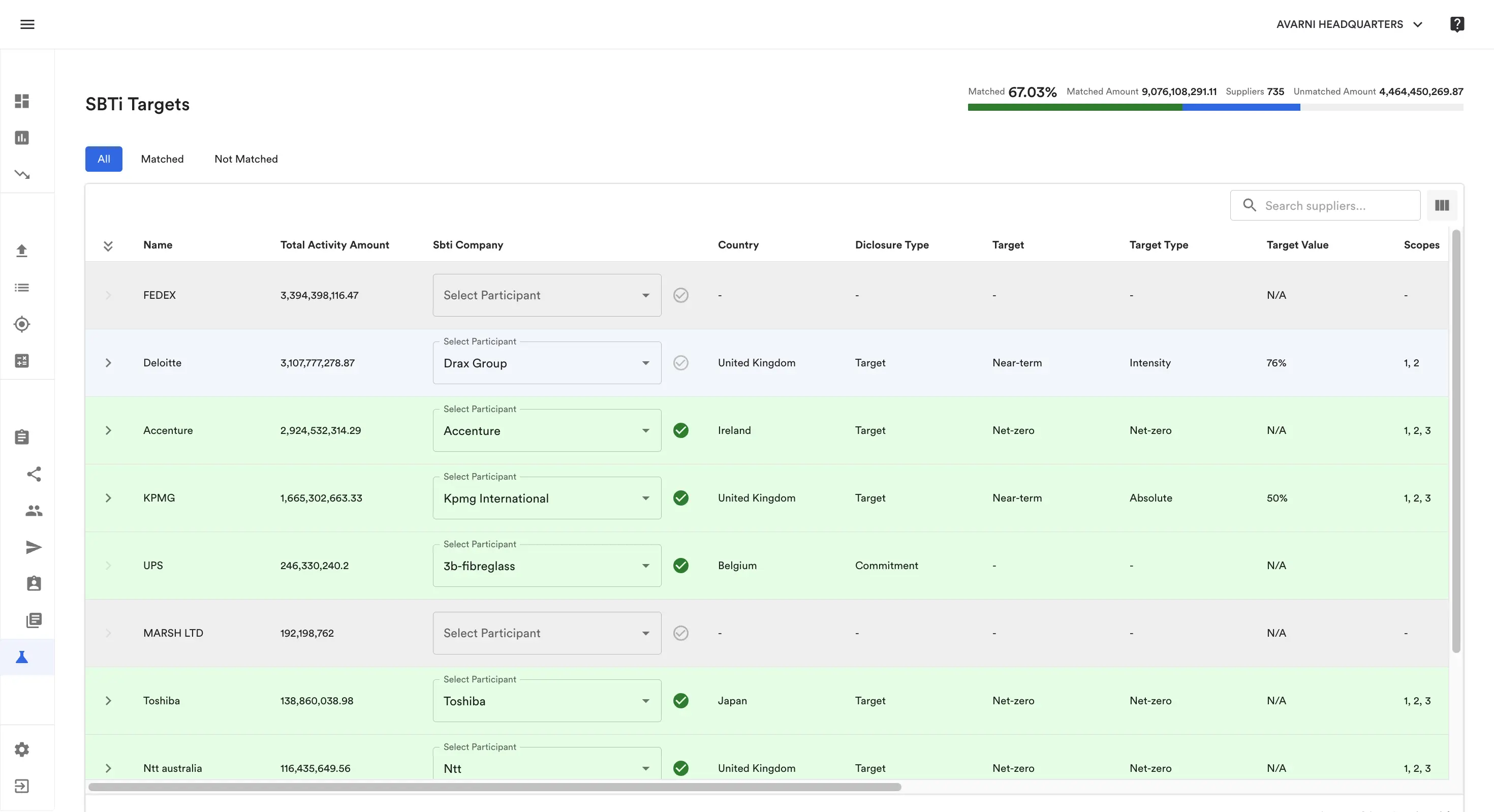
Audit-ready reports
Regulators, investors, and stakeholders expect transparent, verifiable data. Climate reporting software should provide audit trails, version control, and data validation features to ensure credibility. Without these, companies risk non-compliance or reputational damage.
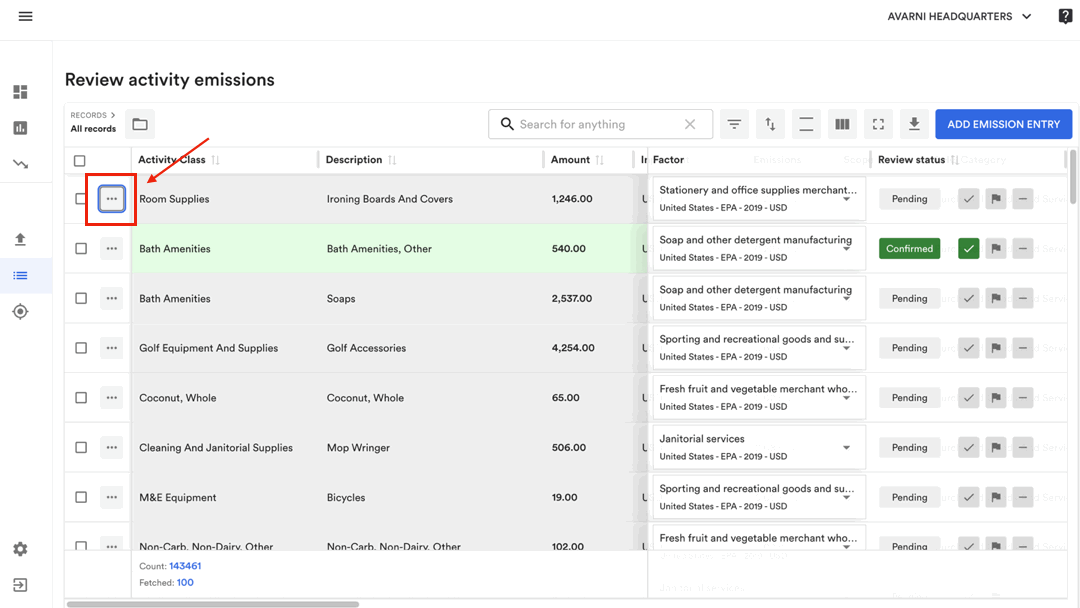
Avarni offers an audit-ready reporting system, ensuring all emissions data is traceable and aligned with the latest disclosure requirements — including AASB S2 for Australian companies. This reduces the burden on internal teams and provides confidence in the numbers.
Scenario analysis and reduction planning
Reporting isn’t just about compliance — it’s about action. The best software goes beyond data collection to offer scenario analysis, forecasting, and reduction planning. Companies need tools that help them model different strategies, track progress, and set science-based targets.
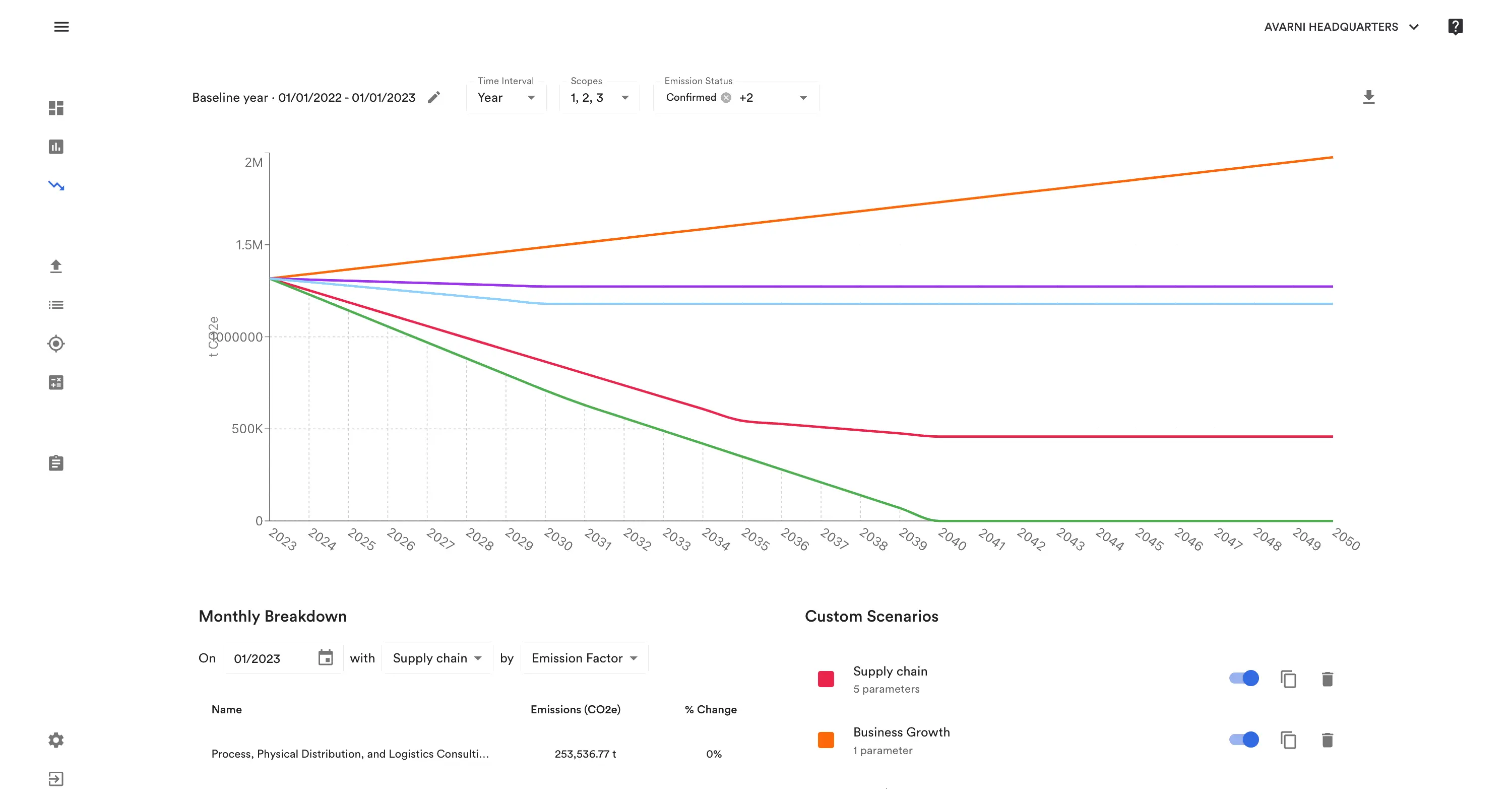
Avarni supports net-zero planning, enabling businesses to visualize the impact of reduction strategies and forecast future emissions. This allows companies to move from reporting to real action.
Summary: Mandatory climate reporting software
- Automated data collection: The best platforms integrate with existing systems and streamline data gathering. Avarni’s AI-driven approach reduces manual effort.
- Regulatory compliance: Ensure the software aligns with global and regional standards like the GHG Protocol, TCFD, ISSB, and Australia’s AASB S2. Avarni is built to meet evolving regulations.
- Scope 3 tracking: Since indirect emissions are complex, the platform should include supplier insights and estimation tools. Avarni makes Scope 3 tracking easier and more accurate.
- SBTi tracking: Avarni’s SBTi Targets feature helps companies track supplier commitments and integrate them into Scope 3 reporting, enhancing transparency and decision-making.
- Audit-ready reports: Reliable platforms offer full data traceability and validation for compliance. Avarni ensures audit-ready reporting, including for AASB S2 in Australia.
- Scenario analysis: Strong tools help companies forecast emissions and plan reductions. Avarni supports net-zero goal setting with actionable insights.
Choosing the right climate reporting software is crucial for meeting compliance requirements and driving meaningful carbon reductions. With platforms like Avarni, companies can automate reporting, improve data accuracy, and stay ahead of global climate regulations.


